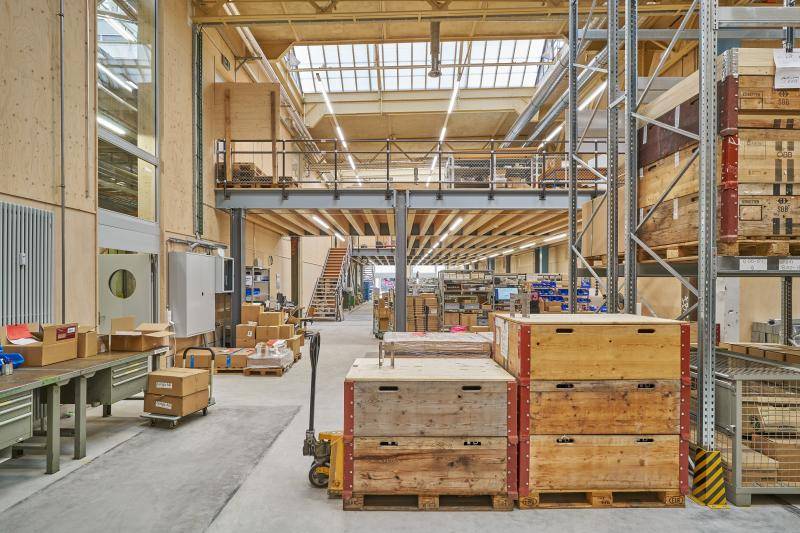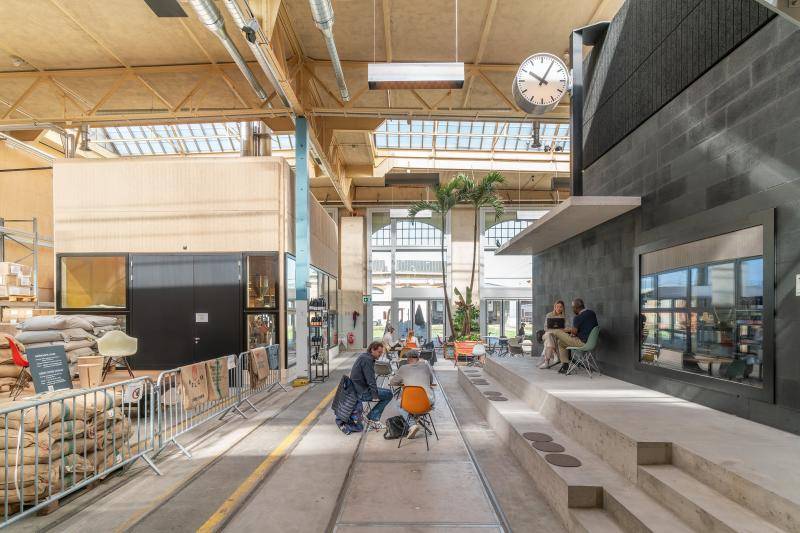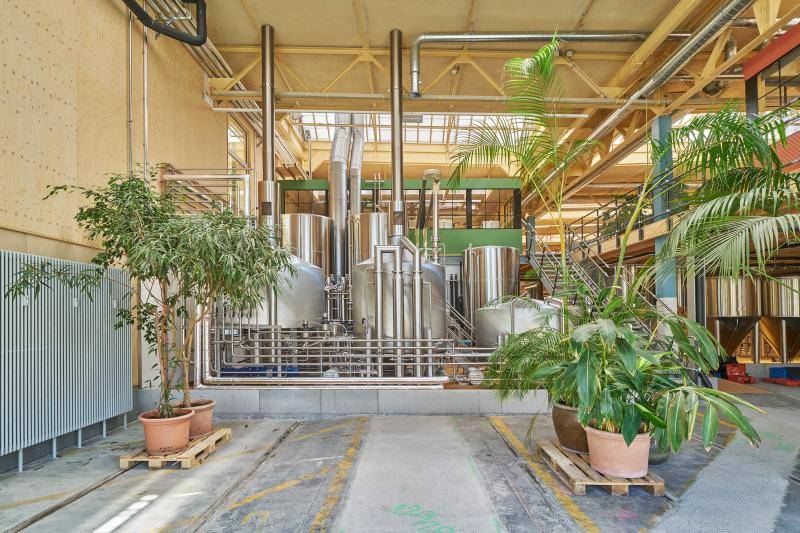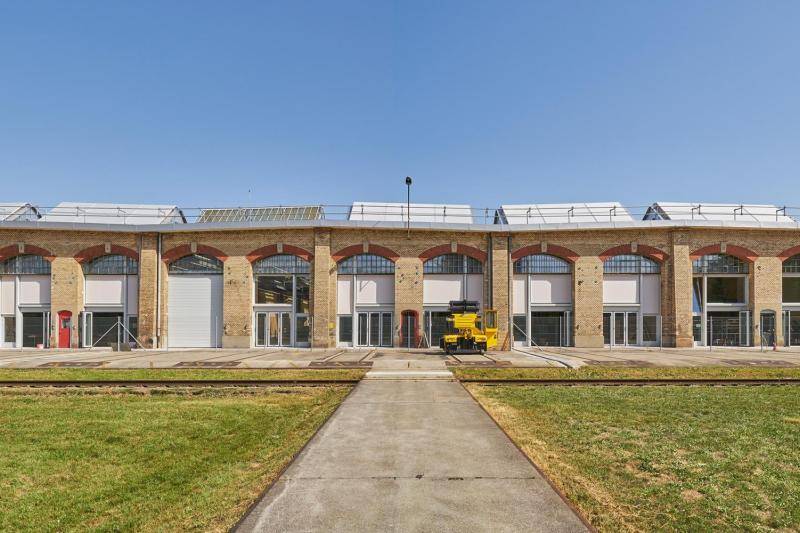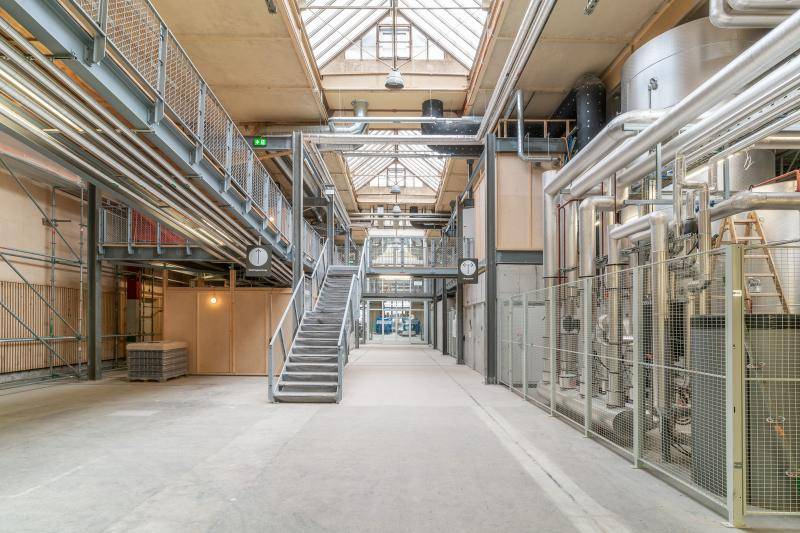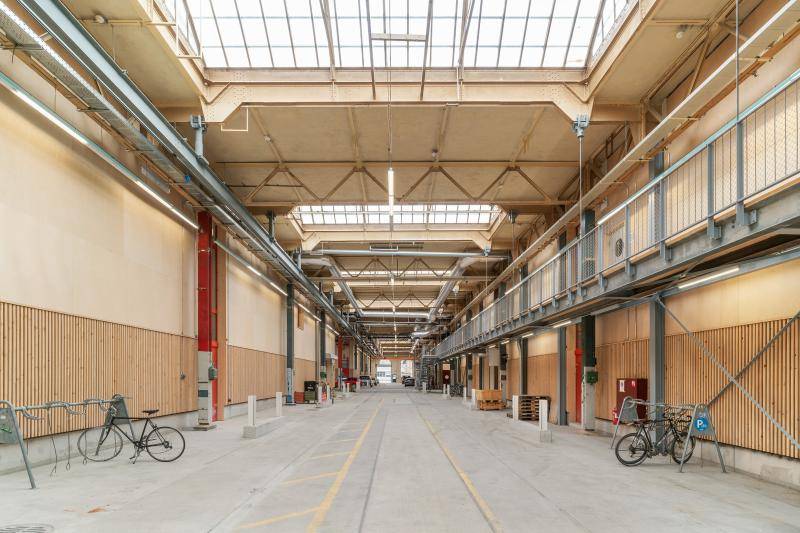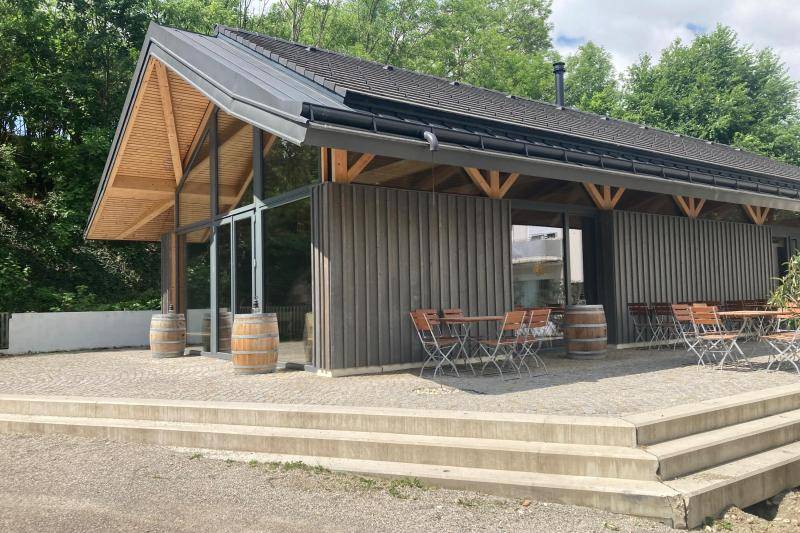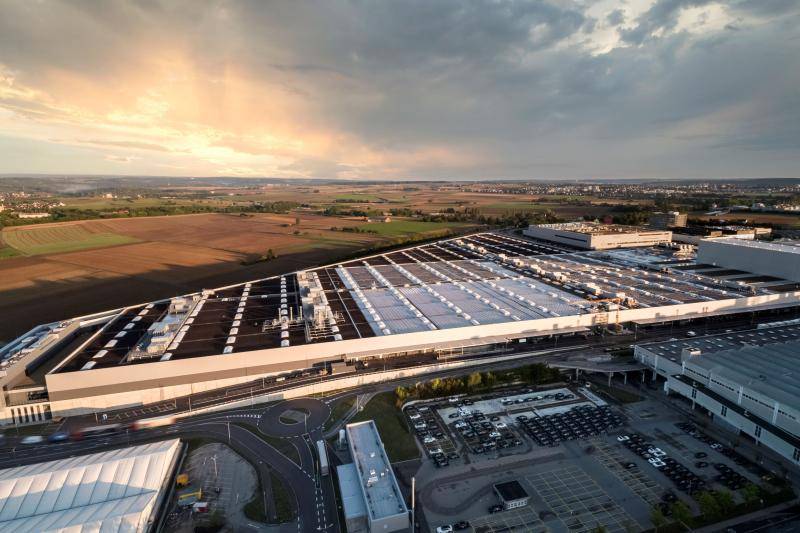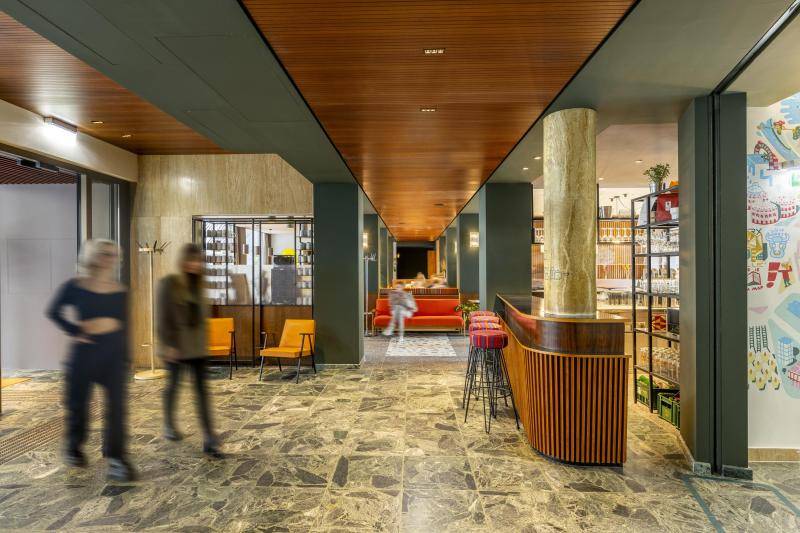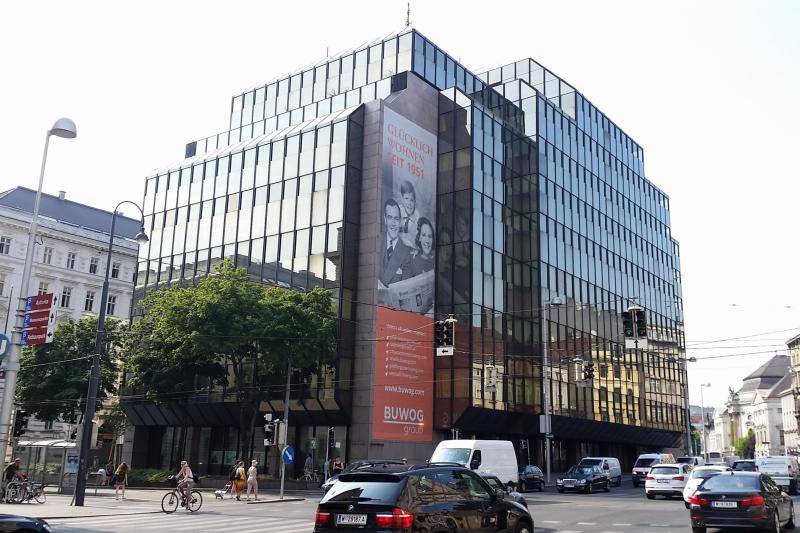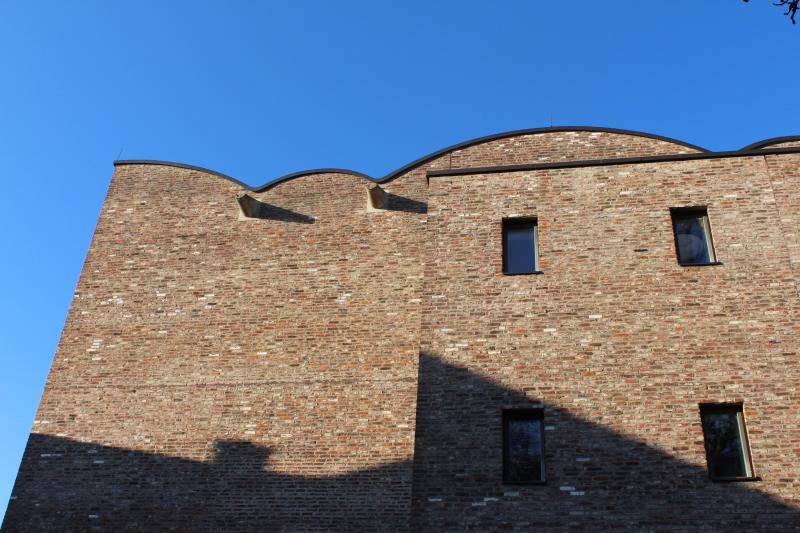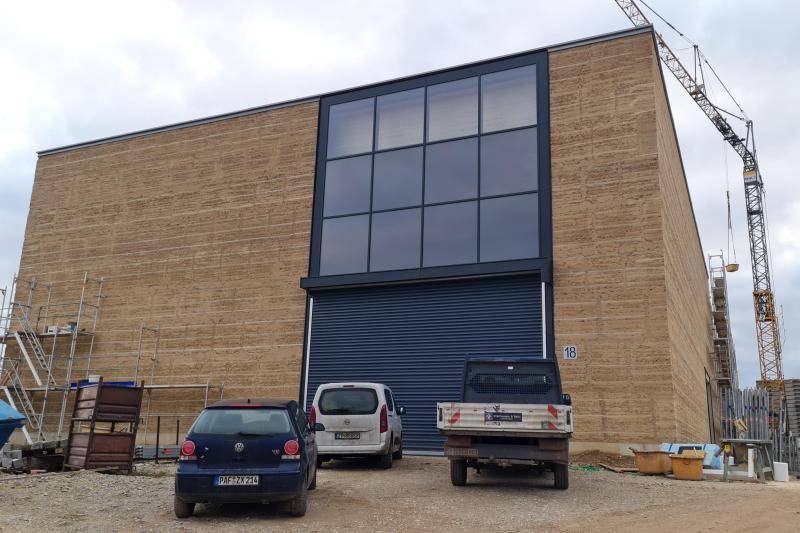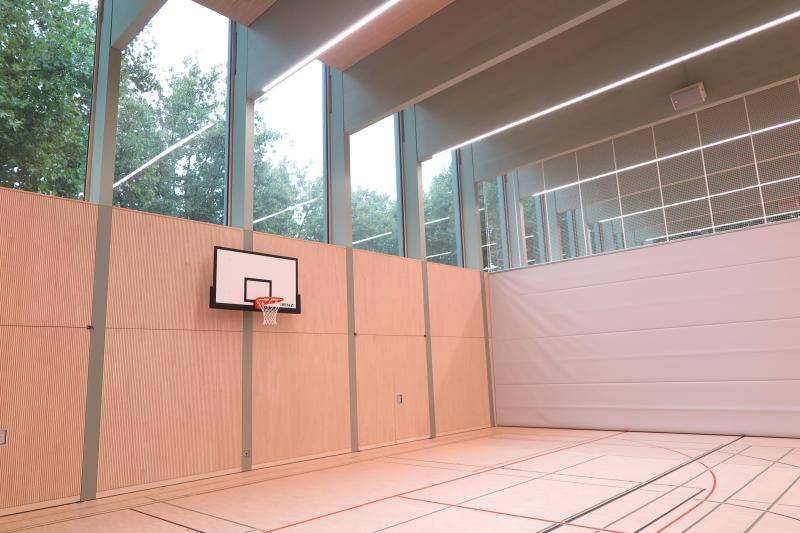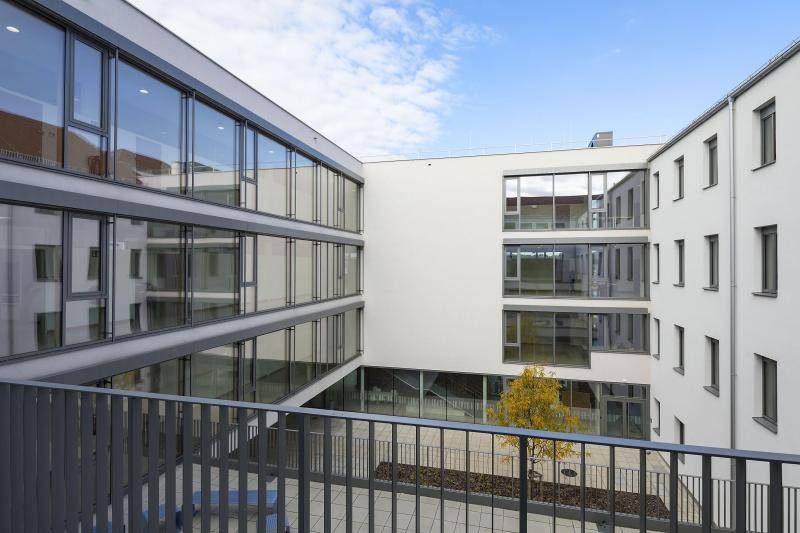Building Q – Werkstadt Areal, full refurbishment
Building Q is a central hall on the former SBB workshop site in Zürich-Altstetten. Originally constructed in 1911, the industrial building was comprehensively renovated in 2024 and converted into four flexible commercial units. The project exemplifies a resource-conscious transformation of historic industrial architecture within the framework of circular construction.
2024
ca. 10.000 m²
Structural engineering: wh‑p Ingenieure AG
Timber construction: Strüby Holzbau, Seewen
HVAC planning: Waldhauser + Hermann, Münchenstein
Construction management: Pasquale Baurealisation AG
Electrical planning: Gutknecht Elektroplanung
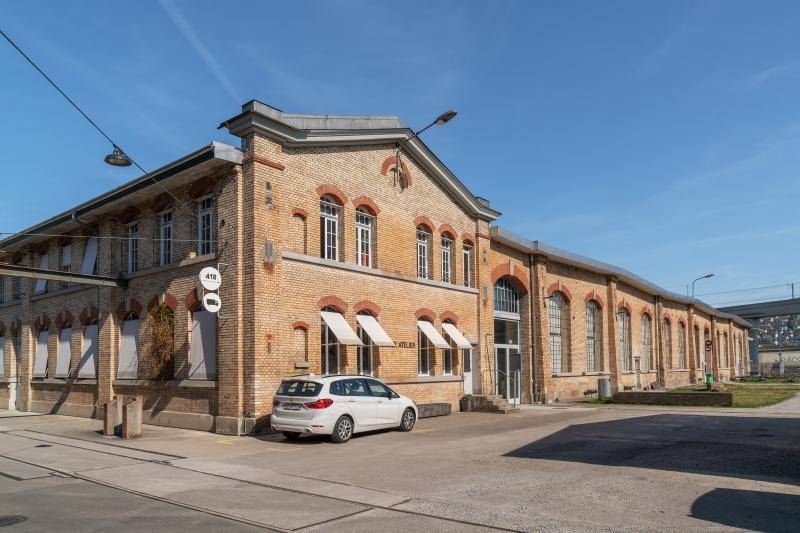
The heritage-listed head building and the elongated hall structure were preserved in their original form. The existing load-bearing system, exposed brick facade, and historical proportions were respected and form the architectural and spatial framework for the refurbishment. Inside, the building was divided into four quadrants and supplemented with new insertions made of timber and steel. These modular mezzanines and partitions were designed for reversibility, allowing for future spatial adaptations.
A key element of the project is the systematic implementation of reuse strategies. Numerous components and materials were reclaimed and reintegrated into the design—among them former SBB catenary masts, old staircases, grating elements, timber beams, and concrete slabs. These reused elements were either installed in their original form or repurposed with new functions. In addition, monomaterial timber construction systems were employed, allowing for disassembly and material separation in the future.
The technical infrastructure of the building was also brought up to date. New building services were centrally organized and integrated without compromising the historic structure. Interventions in the heritage-protected areas were carried out with care and clarity. Additions such as new concrete components were deliberately kept legible. The project was developed by an interdisciplinary team addressing architectural, technical, heritage, and circular economy considerations in parallel.
The transformation and usage concept developed by Denkstatt Sàrl for the Werkstadt site aims to gradually convert the former SBB repair workshop into a hub for urban production. Based on this concept, the construction measures were planned, resulting in a user-oriented and sustainable transformation.
The example of Building Q demonstrates how targeted preservation of the existing structure, reused materials, and modular additions can create a flexible, resource-efficient commercial building with model character.
